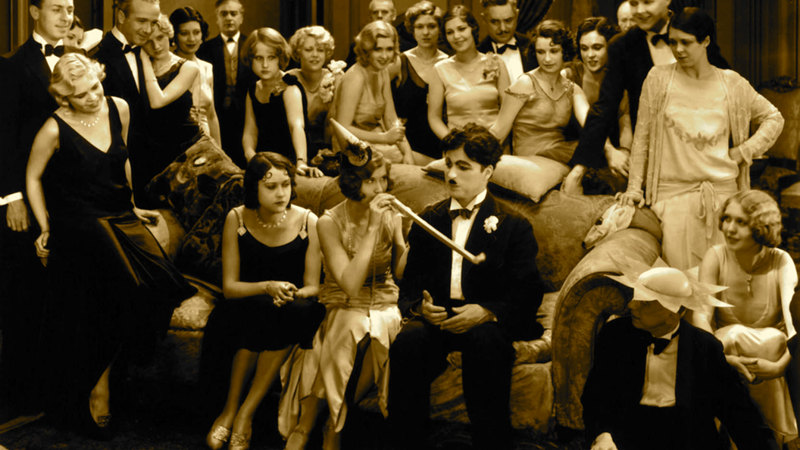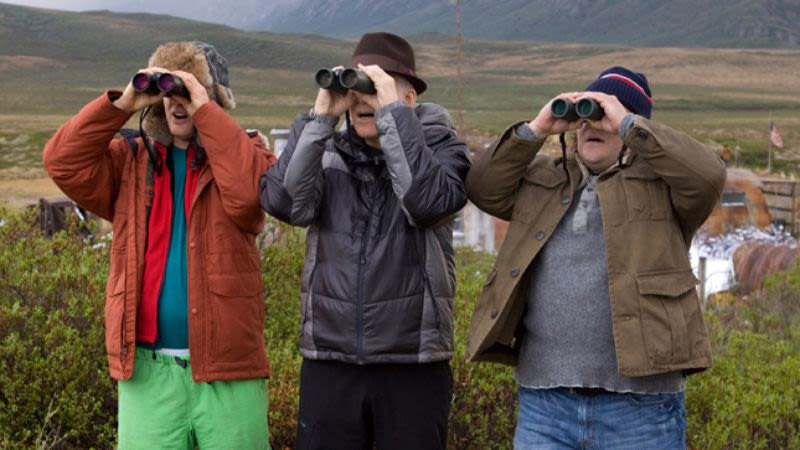Without a doubt, Johnny Depp is one of the most talented, interesting, and daring actors of his generation. Maybe that’s why, when he agreed to a rare televised interview on James Lipton’s “Inside the Actors Studio,” the house was packed with film studies grad students who had grown up watching Depp. It was only the second time that the audience was filled to capacity (the first was Harrison Ford), and Depp further endeared himself to the already partial crowd by lighting up what appeared to be a hand-rolled cigarette and smoking during the interview in defiance of school rules.
That’s fitting, since Depp has a reputation for doing his own thing. It’s a little ironic, though, to hear him shudder at the mention of “21 Jump Street” and his teen idol years, bemoaning a time when he was marketed like a product or commodity. Less than a year after the interview aired on Bravo on September 8, 2002, Depp would swagger and stagger his way on big screens all over the world as Capt. Jack Sparrow in “Pirates of the Caribbean: The Curse of the Black Pearl.” In retrospect, you can see how Depp would have been drawn to the role. He absolutely reinvented the notion of the pirate captain, creating a character so eccentric that it probably would have both amused and horrified former cinematic swashbucklers like Douglas Fairbanks, Jr. and Errol Flynn. At the time, “Pirates” was only projected to be a single film, not the mega-marketed trilogy that has spawned Jack Sparrow action figures and a Johnny Depp-voiced video game, among countless other product tie-ins. But if you put yourself in Depp’s place, he’s got to be wondering what’s wrong with the world when such a deviant and wickedly eccentric finds mainstream acceptance, rather than a small cult following.
Depp visited “Inside the Actor’s Studio” for the last televised episode in the eighth season of the show (now in its 13th year), and he appeared shy, self-effacing, quick-witted, and honest. Depp evaded nothing, but did deflect a few questions with jokes.
Fans of the actor will appreciate this rare appearance, but may already know much of the information that’s covered: his early years growing up in Owensboro, Kentucky, his dropping out of high school to start a band, and his going to L.A. to try to make it in the music business (and taking on acting gigs just to support his music “habit”). Only after “Platoon” did he begin to think of himself as an actor.
Series host James Lipton can sometimes be a little hard to take when he goes off on tangents or talks almost as much as his interview subjects. There have been times when he comes across as arrogant, but for this interview he keeps his own questions short and rapid-fire, deferring to Depp. His reward is the occasional “first” that journalists live for, as when Depp reveals that he began learning guitar when he “stole a chord book,” adding that he was admitting it here for the first time. There are other firsts as well.
Lipton sits at a small desk while Depp sits in a chair for most of the interview, lighting up again when he finishes a cigarette and cracking jokes. As Depp responds, photos from his past appear onscreen, along with clips from his films. We learn at one point that Depp’s head was shaved for “Fear and Loathing in Las Vegas” (1998) by none other than Hunter Thompson himself. Depp talks about why he lives in France, and what fatherhood means to him (“Oh, that’s what life is . . . I see now”).
And when the two of them leave their seats and scoot to the edge of the stage, legs dangling near the first row of the audience, Lipton asks Depp the 10 Barbara Walters-style questions he throws at every guest. Among the most amusing,
“What turns you on?”
“Breathing.”
“What turns you off?”
“Not breathing.”
Then it’s turned over to the audience at The New School (in Greenwich Village) for questions, the most interesting exchange coming when a playwriting student asks him if he’d ever play a female character. “Sure,” Depp responds.
Through it all, Depp onstage conveys the same traits as many of the characters he’s played–a feeling of marginalization, an almost painful awkwardness in social situations, an eccentricity that seems more genuine than cultivated, and a keen wit and intelligence. His commitment to acting shines through most of all, and credit Lipton for keeping the lid on his own substantial ego this time around, so that Depp was able to open up a bit. The result? It’s probably one of the 20 strongest interviews aired in the series, and that’s saying something. The format of the popular show has earned it Emmy nominations for best non-fiction series 11 years of its long run, and more than 200 actors, directors, TV personalities and musicians have been guests.
Though the interview lasts just 50 minutes, Depp fans won’t be disappointed. It’s a rare intimate look at one of today’s biggest talents.
Video:
The series was made for posterity, and so the camera work, though unimaginative, isn’t too jarring and the quality is pretty decent for a TV production. There’s a small amount of grain present, and some of the edge objects are distorted when stretched from 1.33:1 to fill out a 16×9 screen, but overall it’s not bad.
Audio:
This is all talk, and so what appears to be Dolby Digital 2.0 Stereo is sufficient. Like the video, it’s just serviceable enough. There’s a slight flatness to the sound and a little background noise, but again not so much that it becomes a distraction.
Extras:
The box lists a special feature titled “James Lipton: Flashback,” but I can’t figure out how to access it, if indeed it exists. Trailers lead to a menu, which simply says “Play program,” and then credits roll and that’s it. Done.
Bottom Line:
Timing is everything, and while this interview with Depp is engaging, how much more fascinating it might have been if Lipton had waited a year to invite him to appear. I would have loved to have heard what Depp had to say, in an intimate forum like these, about Capt. Jack Sparrow and those blockbuster films that have made him a commodity once more.


